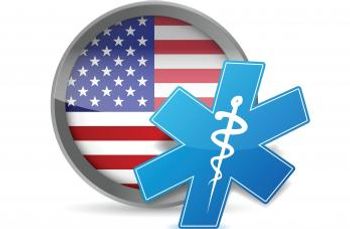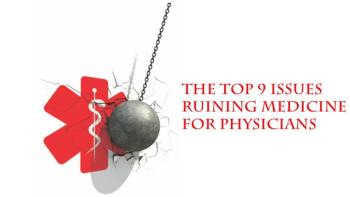
This year could prove to be a challenging year for physicians who aren’t attuned to the latest industry trends in reimbursement.

This year could prove to be a challenging year for physicians who aren’t attuned to the latest industry trends in reimbursement.

One medical group’s path to freedom lights the way for others.

Three simple ways healthcare teams can leverage surveys to make pain management more proactive.

The free market would provide abundant care.

What to consider and how to proceed when designing workplace violence prevention programs for healthcare facilities.

With the right tools, partnerships, and commitment to collaboration, embracing “data utilization” will feel far less overwhelming, and providers will be positioned to enact tangible, positive changes.

Countless physician groups are grappling with how best to introduce and leverage genomics in their practices.

While Continuing Medical Education (CME) and journals have kept me afloat, it is essential to find new creative ways to keep pace with the previous academic rigor of residency.

We seem tired, unhealthy, and worse off than some of the patients asking us for help. Despite what you may think, complex and costly care didn’t zap our energy. The fatigue we feel comes from a lack of balance and connection in our own life.

The healthcare industry doesn’t stay still and neither do the health systems within it as they strive to make meaningful progress for their patients and providers. With that, we see several key interconnected trends making an impact in 2019.

It’s crucial for providers to think of patients as customers and engage with them via the same channels that other businesses use to nurture those valuable relationships.

As physicians, we have given up control and lost the ability to do the job we were trained to do. Our focus has turned instead to serving needs that have become more demanding than those of our patients.

Artificial intelligence can create tangible benefits when it helps facilitate better, more frequent support beyond the four walls of care delivery.

Republican Congressman Phil Roe, MD, spoke with Medical Economics about healthcare issues he thinks the new Congress needs to address, including price transparency and the shortage of primary care physicians.

Here are the reimbursement trends physicians can expect in 2019.

A new bill recently introduced to Congress would not only reduce barriers to genetic counseling for Medicare patients, but also could significantly decrease costs of caring for elderly and low-income patients.

Just as small holes in a ship can eventually lead to a catastrophic sinking, small holes in your communication can sink your practice as well.

Here are the issues that annoy and frustrate doctors and get in the way of treating patients and running practices.

The EHR, like many new technologies, has capacity to improve the health and safety of our patients. So what can we do to make this happen?

For many in healthcare, words and actions can be harmful, and in some instances can lead to jury awards in the hundreds of thousands of dollars.

If doctors are savvy about it, they have options at their disposal to get away from full-time clinical work.

Here's what you should do the next time you experience a patient in a strong emotional state.

Four physicians allege ABIM is illegally tying its initial certification to MOC.

Several strategies facilitated by technology are helping provide access to hidden capacity in our current health system.

With office visits jammed with complex patients and underserved communities aching from lack of access, physicians need to think outside of the box.